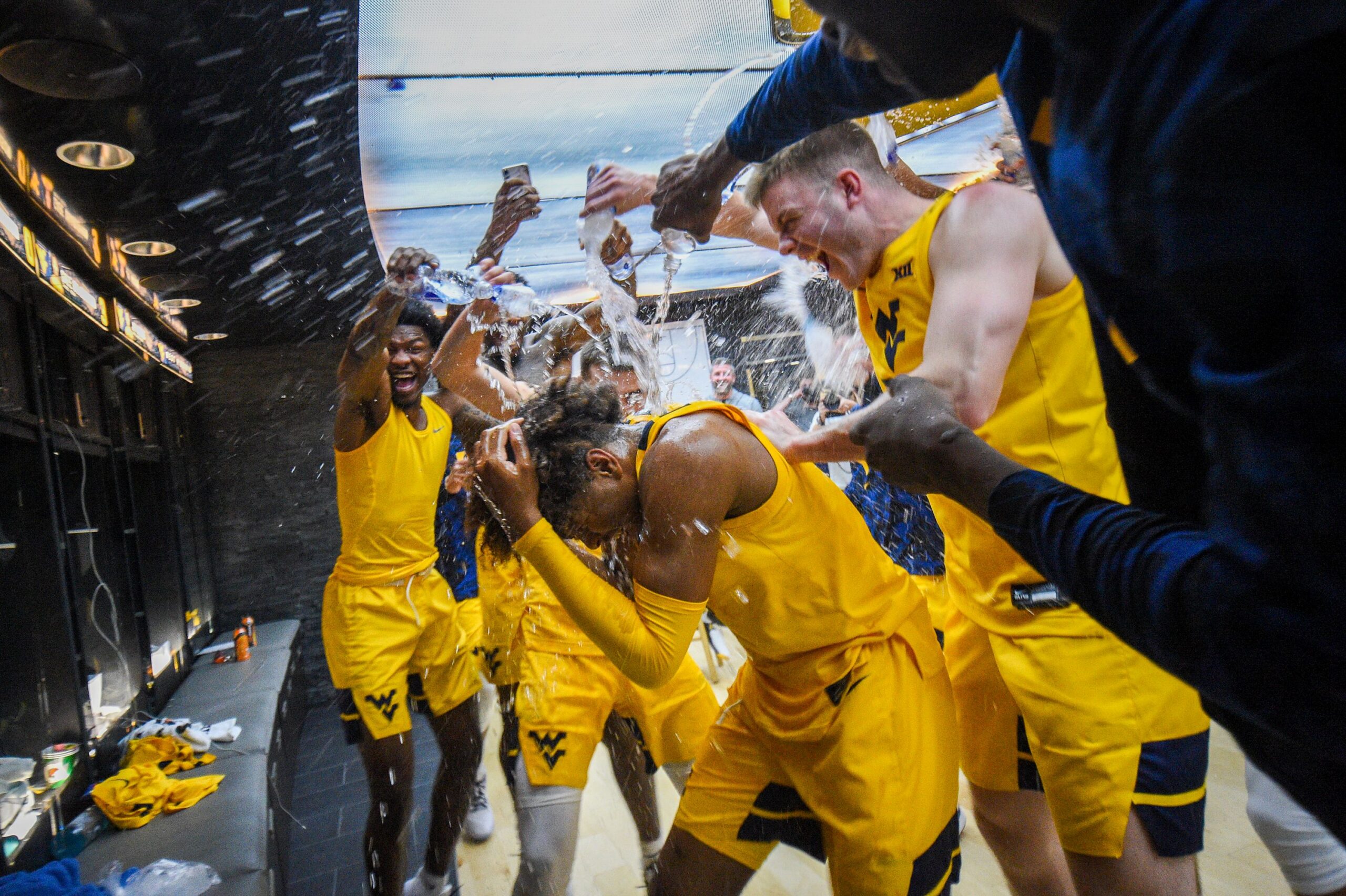MORGANTOWN, W. Va. — It was thought No. 11 West Virginia was built to win slugfests, not track meets.
Ever since the departure of forward Oscar Tshiebwe, who transferred to Kentucky after the Dec. 29 game against Northeastern, the numbers show WVU have become more Bruce Springsteen, “Baby, we were born to run.”
It was never more evident than Monday’s 88-87 victory against No. 10 Texas Tech — Bob Huggins’ 21st win with the Mountaineers against a top 10 team — a game that went against every defensive and bar-room brawl philosophy the Mountaineers had in place with Tshiebwe in the lineup.
WVU had five offensive rebounds against the Red Raiders.
The Mountaineers’ defense forced just two turnovers. There is history to that stat. It’s the least amount of turnovers WVU has forced in a game since they’ve become an official statistic.
“Obviously not forcing a team into turnovers, that’s not playing to our style,” WVU guard Deuce McBride said. “It’s hard to win Big 12 games like that, but obviously we have a lot of fight in us and we’re not going to back down from anybody. We’re going to keep moving after our mistakes.”
Or maybe the Mountaineers just keep moving a little faster in general.
The sample size after Tshiebwe’s departure is small, yet reveals some interesting numbers.
WVU (11-4, 4-3 Big 12) has averaged 77 points per game post Tshiebwe, while it averaged 74 points with him.
Three-point shooting is most telling. WVU went 12 of 19 (63%) against Texas Tech.
With Tshiebwe in the lineup, the Mountaineers made 54 threes in 10 games. In the five games since, WVU has made 52 and is connecting on 46% of its attempts from behind the arc.
“When a team goes 12 for 19 from the 3-point line, it’s obviously a great night shooting,” Texas Tech head coach Chris Beard said. “If you’ll dissect the 12 makes like we will, several of them, or at least a decent percentage, are going to be our fault. We had defensive mistakes and breakdowns.
“On a night where the other team is hot, you just can’t afford that many defensive breakdowns.”
Freshman Jalen Bridges was moved into the starting lineup after Tshiebwe’s departure, and while Bridges stands 6-foot-7, he’s not the physical bruiser that Tshiebwe was.
So, WVU has adjusted. While forward Derek Culver was once in a logjam in the paint, he now has more room to move about.
Where Tshiebwe once occupied space to rebound the ball, Bridges helps the Mountaineers spread the floor with an extra shooter on the perimeter.
Since becoming a starter, Bridges has been averaging 10.2 points per game and has shot 10 of 15 (67%) from 3-point range.
“We’ve got to get him to rebound it a little bit more, which he’s capable of,” Huggins said of Bridges. “But yeah, this is exactly what I envisioned.”
And while the Mountaineers may now be able to envision more offense, there is a flip side.
WVU allowed 67.5 points per game with Tshiebwe, but are giving up 73 since.
“We haven’t really pursued the ball the way we normally pursue the ball,” Huggins said. “We have a lot of things to clean up. We need to get those things cleaned up and stop turning it over. We just make dumb turnovers sometimes. We have to cut those out. If we cut those out, we can beat anybody.”
TWEET @bigjax3211




